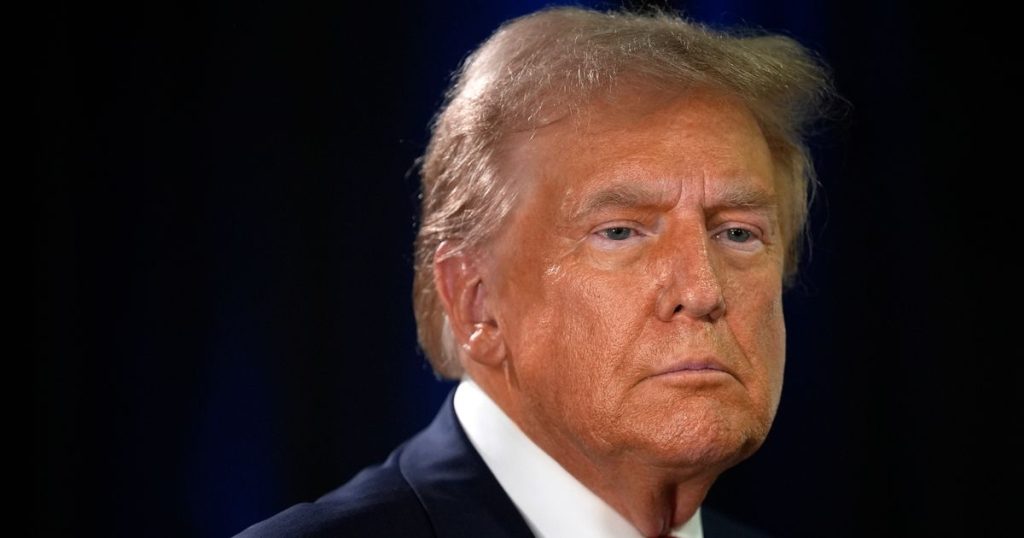The judge overseeing the Georgia election interference case against Donald Trump and others has dismissed three counts in the indictment, including two counts against the former president, stating that they are beyond the state’s jurisdiction. The case is on hold while an appeal is pending, but orders were issued based on motions filed by two defendants, Shawn Still and John Eastman, who are not part of the appeal. Though two counts related to filing false documents with the federal court in Atlanta were quashed for being out of the state’s jurisdiction, the overarching racketeering charge and 32 other counts remain.
The case stems from accusations that Trump and 18 others participated in a conspiracy to illegally try to overturn Trump’s loss in Georgia during the 2020 presidential election. The indictment also includes four individuals who pleaded guilty last year after making deals with prosecutors. Trump and the defendants attempted to have the district attorney removed from the case due to a perceived conflict of interest, stemming from a romantic relationship the DA had with a special prosecutor she hired. The judge ruled there was no conflict warranting her disqualification as long as the special prosecutor left the case.
The two counts related to filing false documents and conspiracy to file false documents with the federal court were dismissed on grounds of being beyond the state’s jurisdiction. The third count charged Trump and Eastman with knowingly and unlawfully filing a lawsuit that contained at least one materially false statement about the 2020 election in Georgia. The judge cited case law supporting federal perjury statutes and ruled that this charge must also be quashed. Prosecutors are reviewing the order, and the defense teams of the accused parties have expressed satisfaction with the dismissal of charges against them.
The judge rejected an attempt to dismiss a broad racketeering count in the indictment, supported by 161 alleged acts the defendants engaged in to challenge Trump’s electoral loss. The defense lawyers argued that the Republicans who acted as electors for Trump were within their rights under the federal Electoral Count Act, but the judge ruled that the statute did not bar prosecution by the state. The issue of whether the actions of the Trump electors were legal will be addressed at trial, according to the judge. The rulings did not take into account the absolute immunity granted to former presidents for official acts, as these issues have not been fully argued before the court.
While the case against Trump and others is on hold pending an appeal, motions filed by defendants not included in the appeal have led to the dismissal of several counts from the indictment. The allegations of a conspiracy to overturn the 2020 election results in Georgia have resulted in charges being brought against multiple parties, with some pleading guilty and others contesting the accusations. The legal battle surrounding the case continues as the courts navigate complex jurisdictional issues and legal arguments regarding the actions of the defendants.


